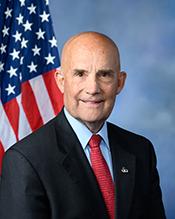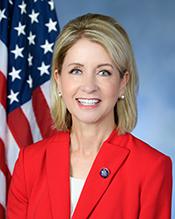0
0
0
Disapproving of recommendations by the United Nations to reduce meat consumption in the United States.
2/5/2024, 11:45 AM
Summary of Bill HRES 920
Bill 118 HRES 920, also known as the Disapproval of United Nations Recommendations on Meat Consumption in the United States, is a piece of legislation that aims to reject the suggestions made by the United Nations to decrease meat consumption in the United States. The bill argues that the recommendations made by the United Nations are not in the best interest of the American people and would negatively impact the agricultural industry.
The bill highlights the importance of meat production in the United States, both economically and culturally. It argues that reducing meat consumption would harm American farmers and ranchers, as well as the overall economy. Additionally, the bill asserts that meat is an important part of the American diet and should not be restricted by outside entities.
Supporters of the bill believe that the United States should have the autonomy to make decisions regarding food consumption without interference from international organizations. They argue that the recommendations made by the United Nations are not based on sound scientific evidence and do not take into account the unique dietary preferences and traditions of Americans. Opponents of the bill argue that reducing meat consumption is necessary to address issues such as climate change, animal welfare, and public health. They believe that the United States should be taking steps to promote a more sustainable and healthy diet, which includes reducing meat consumption. Overall, Bill 118 HRES 920 is a contentious piece of legislation that highlights the ongoing debate surrounding meat consumption in the United States and the role of international organizations in shaping dietary guidelines.
The bill highlights the importance of meat production in the United States, both economically and culturally. It argues that reducing meat consumption would harm American farmers and ranchers, as well as the overall economy. Additionally, the bill asserts that meat is an important part of the American diet and should not be restricted by outside entities.
Supporters of the bill believe that the United States should have the autonomy to make decisions regarding food consumption without interference from international organizations. They argue that the recommendations made by the United Nations are not based on sound scientific evidence and do not take into account the unique dietary preferences and traditions of Americans. Opponents of the bill argue that reducing meat consumption is necessary to address issues such as climate change, animal welfare, and public health. They believe that the United States should be taking steps to promote a more sustainable and healthy diet, which includes reducing meat consumption. Overall, Bill 118 HRES 920 is a contentious piece of legislation that highlights the ongoing debate surrounding meat consumption in the United States and the role of international organizations in shaping dietary guidelines.
Congressional Summary of HRES 920
This resolution disapproves of the United Nations' recommendations to reduce meat consumption in their global food systems' road map and opposes the use of federal resources to reduce meat consumption.
Read the Full Bill
Current Status of Bill HRES 920
Bill HRES 920 is currently in the status of Bill Introduced since December 11, 2023. Bill HRES 920 was introduced during Congress 118 and was introduced to the House on December 11, 2023. Bill HRES 920's most recent activity was Referred to the Committee on Agriculture, and in addition to the Committee on Foreign Affairs, for a period to be subsequently determined by the Speaker, in each case for consideration of such provisions as fall within the jurisdiction of the committee concerned. as of December 11, 2023
Bipartisan Support of Bill HRES 920
Total Number of Sponsors
1Democrat Sponsors
0Republican Sponsors
1Unaffiliated Sponsors
0Total Number of Cosponsors
20Democrat Cosponsors
0Republican Cosponsors
20Unaffiliated Cosponsors
0Policy Area and Potential Impact of Bill HRES 920
Primary Policy Focus
Agriculture and FoodAlternate Title(s) of Bill HRES 920
Disapproving of recommendations by the United Nations to reduce meat consumption in the United States.
Disapproving of recommendations by the United Nations to reduce meat consumption in the United States.
Comments
Sponsors and Cosponsors of HRES 920
Latest Bills
Moab UMTRA Project Transition Act of 2025
Bill S 1321December 11, 2025
Federal Mechanical Insulation Act
Bill HR 3474December 11, 2025
Providing for consideration of the bill (H.R. 2550) to nullify the Executive Order relating to Exclusions from Federal Labor-Management Relations Programs, and for other purposes.
Bill HRES 432December 11, 2025
Protecting Our Courts from Foreign Manipulation Act of 2025
Bill HR 2675December 11, 2025
Tipped Employee Protection Act
Bill HR 2312December 11, 2025
A bill to redesignate the National Historic Trails Interpretive Center in Casper, Wyoming, as the "Barbara L. Cubin National Historic Trails Interpretive Center".
Bill S 790December 11, 2025
Mississippi River Basin Fishery Commission Act of 2025
Bill HR 1514December 11, 2025
Litigation Transparency Act of 2025
Bill HR 1109December 11, 2025
Southcentral Foundation Land Transfer Act of 2025
Bill HR 3620December 11, 2025
Enduring Justice for Victims of Trafficking Act
Bill S 2584December 11, 2025





